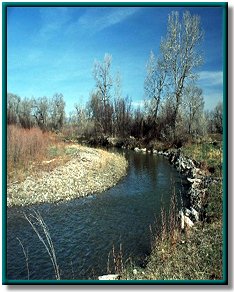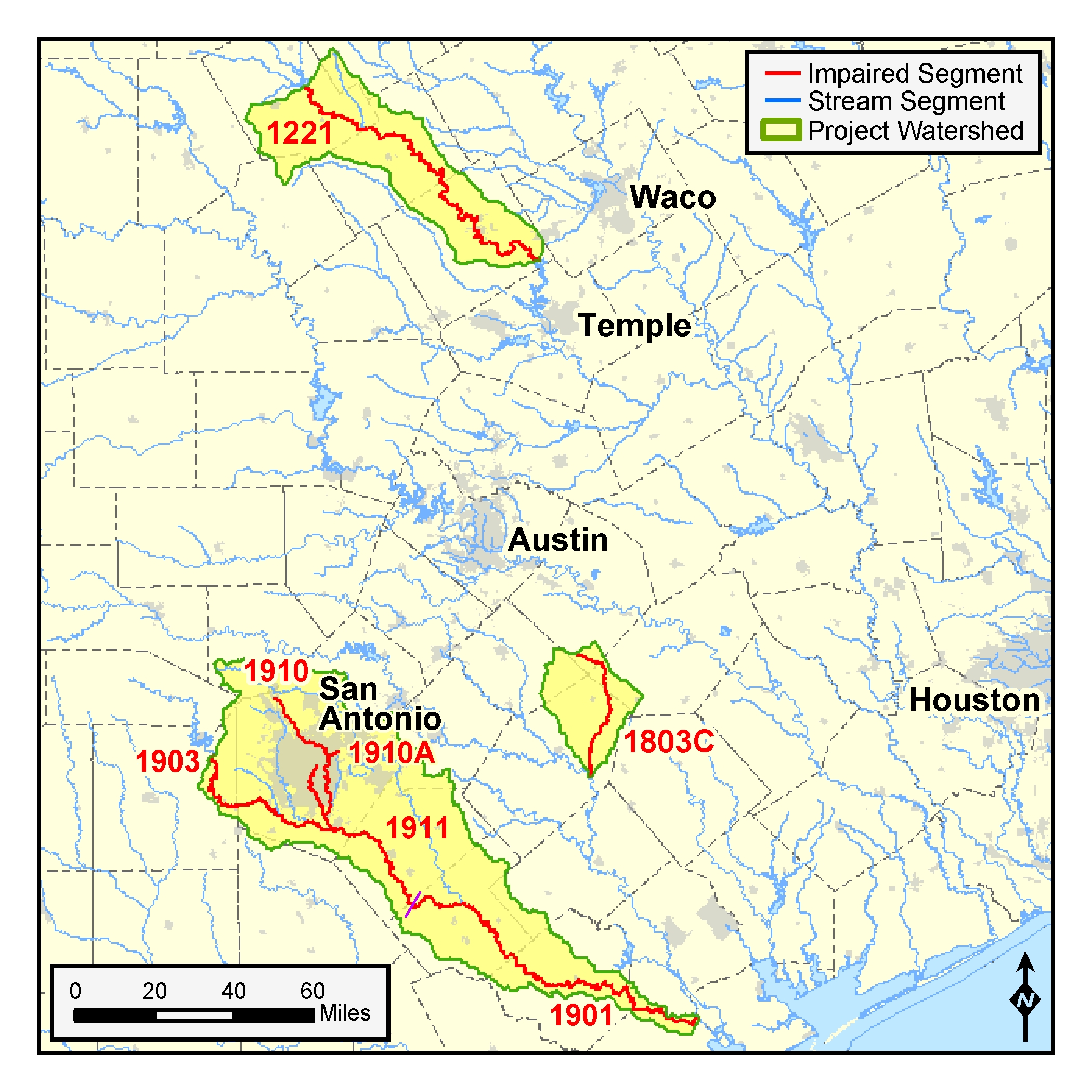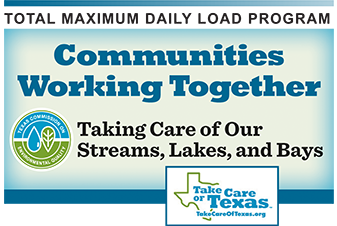San Antonio River Basin, Leon River, and Peach Creek
Counties: Bastrop, Bexar, Caldwell, Comanche, Coryell, DeWitt, Erath, Fayette, Goliad, Gonzales, Guadalupe, Hamilton, Karnes, Mills, Refugio, Victoria, Wilson
Parameter: Bacteria
River Basins: San Antonio, Guadalupe, Brazos
Segments: 1221, 1803C, 1901, 1910, 1910A, 1911
On this page:
Background and Goal
In seven streams in the San Antonio, Brazos, and Guadalupe River Basins, TCEQ water quality assessment as of 2004 found elevated concentrations of bacteria. High concentrations of bacteria such as E. coli and fecal coliform, which are found in both human and animal waste, may indicate a health risk to people who swim or wade in the streams—activities called “contact recreation” in the state’s standards for water quality.
The goal of this project was to evaluate the need for TMDLs to reduce bacteria concentrations to within acceptable levels in the affected segments—the Medina River below the Medina Diversion Lake (Segment 1903), the Leon River below Proctor Lake (Segment 1221), Peach Creek (Segment 1803C), San Antonio River (Segment 1901), Salado Creek (Segment 1910), Walzem Creek (Segment 1910A), and Upper San Antonio River (Segment 1911).
Based on additional information collected during Phase II of the project and stakeholder input, this project did not result in a TMDL.
Texas State Soil and Water Conservation Board (TSSWCB) personnel are working with regional stakeholder on early implementation activities.
Watershed Description
Peach Creek is located in the southern portion of the Guadalupe-Blanco River Basin. The creek flows north to south from its origin northeast of Waelder in Gonzales County to south of the city of Gonzales. Land use in the watershed is mostly mixed woods, rangeland, and agricultural.
The Leon River below Proctor Lake, Segment 1221, is located in south central Texas and has a watershed covering approximately 1,364 square miles. The segment extends 173 miles northwest from its lower end at the head of Belton Lake. Land use in the Leon River watershed is primarily rural, with rangeland (much of it forested or brushy) cropland, and pastureland, with some small urban areas.
The Upper San Antonio River, Segment 1911, is located in the central portion of the San Antonio River Basin. Its headwaters are in southeastern Bexar County within the City of San Antonio. The river runs north to south, from the southern end of San Antonio, past Floresville and Poth to FM 791 near Falls City in Karnes County. The upper portion of the watershed is largely developed; land use in the lower portion is agricultural and rangeland.
The Lower San Antonio River is located near Falls City, in Karnes County. Land uses are predominantly agricultural and ranching. The watershed has unconsolidated mud and sand substrate; thick, organic soils; little topographic relief; and an abundance of shrub and grassland vegetation.
Phase I: Evaluation
Additional data collected from the Medina River below the Medina Diversion Lake (Segment 1903) during Phase I indicated that the segment was meeting the applicable criteria; consequently, no TMDL was developed. In Phase II of the project, TCEQ formed four additional projects to develop TMDLs for the other six segments (see below).
Phase II: TMDL Development
Because of the geographic separation among the watersheds, the TCEQ formed four new projects to develop the necessary TMDLs. Get information on those projects by following the links below.
- Leon River below Proctor Lake (Segment 1221) did not result in a TMDL, based on additional information collected during Phase II and stakeholder advice.
- Peach Creek (Segment 1803C) did not result in a TMDL, based on additional information collected during Phase II and stakeholder advice.
- Lower San Antonio River (Segment 1901)
- Upper San Antonio River (Segments 1910, 1910A, and 1911)
Contact Us
Email tmdl@tceq.texas.gov and mention the San Antonio–Leon–Peach assessment project in the subject line. Or call us at 512-239-6682.






 Back to top
Back to top